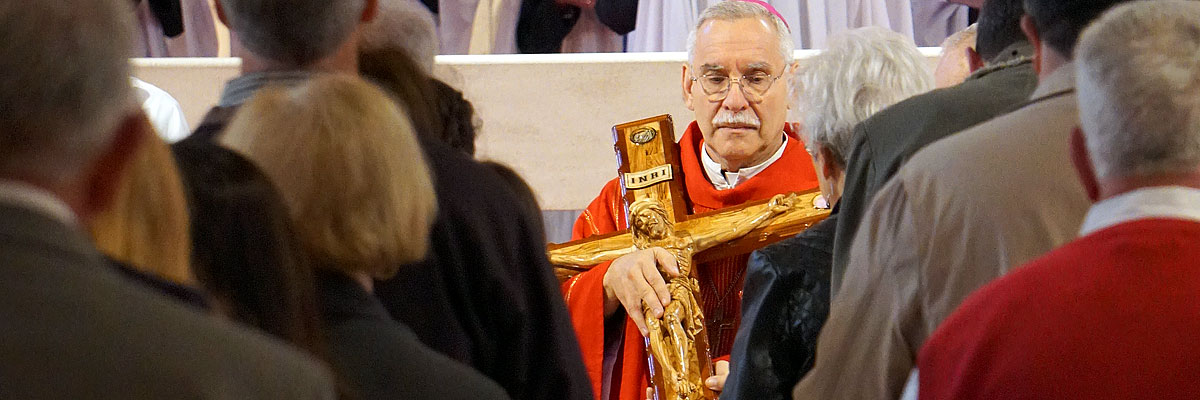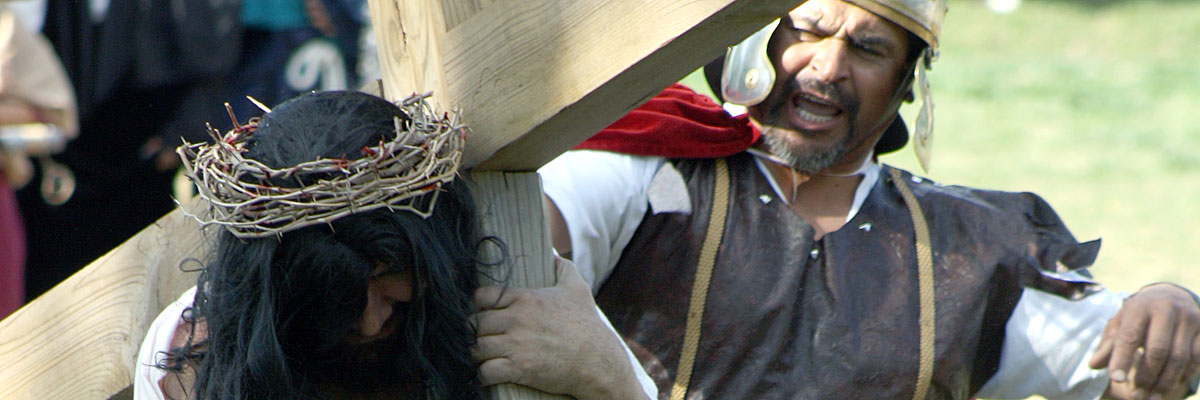Official Website of the
Catholic Diocese of Little Rock
Holy Thursday Mass of the Lord's Supper 2020
Published: April 9, 2020
Bishop Anthony B. Taylor preached the following homily at the Diocese of Little Rock House of Formation in Little Rock on Thursday, April 9, 2020.

Bishop Taylor
This has got to be the humblest Holy Thursday that any of us have ever experienced. Most of the people participating in this Mass are doing so via the Internet, not able to be present in person due to the COVID-19 pandemic.
I am celebrating the Triduum here at our House of Formation. It is only in private, self-enclosed religious communities like this that the residents are able actually to be present physically — but no outsiders. Sort of like that small group that gathered with Jesus in private — indeed, in hiding — that evening of the Last Supper.
But unlike that original Holy Thursday, the general public is able to be present in a virtual way through the Internet — so my greetings to you who are participating in that way. I know this is a far cry from being able to be here in person, but it is much more than was possible in October of 1918, the last time that public Masses were suspended in the United States for an extended period of time, in that case due to the Spanish Flu pandemic.
And yet, even knowing how weak and unreliable they were, Jesus washed their feet. And then through them he tells us, who are also weak and unreliable, that we should serve others with just that much humility.
Like I said, this year’s celebration is the humblest Holy Thursday of our life, and God’s call to humility is woven throughout everything we do today. We have the Gospel reading of Jesus’ washing the feet of his disciples to model the humility with which we are to serve others, saying “as I have done for you, you should also do” — but then this year we don’t even do that!
Most of our priests are celebrating Mass privately, so they have no feet to wash except their own! And even those of us who are celebrating Mass for a self-contained religious community have to maintain physical distancing, not touching other people’s bodies.
So, the Vatican has indicated that the washing of feet — which was always actually optional, though almost always done — will not be done this year. What could be humbler than a Mass in which even the conditions necessary for an act of humility are out of reach!
And yet, doesn’t this touch on something that is at the heart of the two sacraments instituted by Jesus on this day 2,000 years ago: the Eucharist and the priesthood? Namely, humility! In our everyday life we want so much to be in control — and in this moment the COVID-19 pandemic makes it clear that we aren’t … and never were.
We want a secure future. We want the sacraments — the comfort they bring us, their strength. And yet what do we learn from Jesus today? Jesus has every reason to fear the future. He knew that the religious authorities had long been out to get him, and now it was about to get very serious because one of his own had already made arrangements to betray him, and he knows it.
At the Last Supper Jesus not only gave us the sacrament of the Eucharist, he also linked this sacrament to the events to take place the next day, his great day of humiliation and suffering, his body sacrificed for us, his blood poured out for us on the cross.
And in telling his disciples to “do this in remembrance of me” he instituted the priesthood. But what a disappointment they were to be, at least initially. They couldn’t stay awake in the garden when he really needed their support, and then worse, they fled, and Peter even denied him three times — only John stayed with him to the end.
And yet, even knowing how weak and unreliable they were, Jesus washed their feet. And then through them he tells us, who are also weak and unreliable, that we should serve others with just that much humility. This call to humble service applies especially to us who, like those first disciples, he has chosen for the priesthood.
It is a high honor to preside at the Eucharist “in remembrance of him,” a privilege like none other to consecrate bread and wine into his real body and blood, soul and divinity — and yet so humbling to know that none of it comes from us.
Indeed, even our desire to give ourselves to the Father from this altar in union with Jesus is simply our response to grace given to us by God, enabling us to unite our meager sacrifices and suffering to his — including all the adversities we face in this time of COVID-19.







